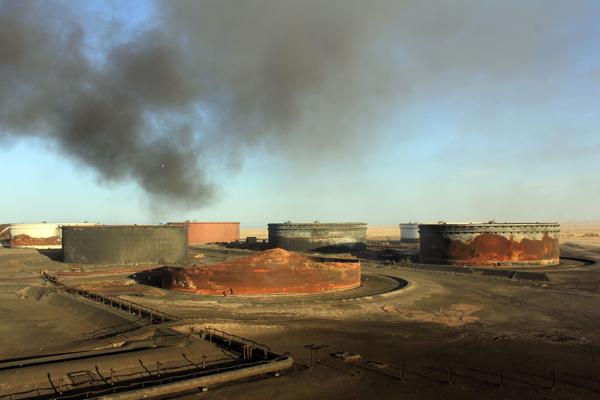You are here
Libya rebels warn Tripoli oil ports to stay closed unless deal implemented
By Reuters - Apr 24,2014 - Last updated at Apr 24,2014
TRIPOLI — A rebel group in eastern Libya that controls several oil ports said on Thursday it would not reopen the key Ras Lanuf and Es Sider terminals unless the government implemented its part of a recent deal to end the oil blockade.
In a sign of further delays to restart vital oil exports from the volatile east, rebels said the Tripoli government had failed to fulfil its part of the accord reached this month.
Diplomats expect both sides to implement the deal eventually as the country badly needs the oil revenue but tactical manoeuvres and mutual mistrust are likely to cause delays.
The row is part of chaos in the North African country where the government cannot control militias who helped oust Muammar Qadhafi in 2011 but have held on to their weapons to make political and financial demands by seizing oilfields or government ministries.
“The government hasn’t fulfilled a single item of the agreement to reopen the ports,” rebel spokesman Ali Al Hasi told Reuters.
Tripoli has not paid state salaries to the rebels — who are former oil guards — as agreed under the deal reached earlier this month to reopen four oil ports, he said.
The agreement also called for a commission to investigate corruption.
So far only the 110,000 barrels per day (bpd) Hariga port in Tobruk has resumed work, while the Zueitina port is facing technical issues after the long blockage.
Both ports had meant to reopen immediately after the signing of the deal almost three weeks ago with the larger terminals Ras Lanuf and Es Sider restarting after more talks.
There was no immediate comment from the government but Cabinet spokesman Ahmed Lamin said earlier the Ras Lanuf and Es Sider ports would be handed over within a month — a claim dismissed by the rebel spokesman unless the government fulfilled its part of the deal.
Lamin said Zueitina port cannot resume exports until outstanding technical issues are fixed.
Sources close to the talks say part of the problem is that some rebels at Zueitina terminal had demanded to be put on the government payroll, a strategy used before in post-Qadhafi Libya to put pressure on a weak central government.
Protests at oilfields and pipelines have also crippled oil production in the west of the OPEC producer, reducing output to around 220,000 bpd from 1.4 million bpd in summer.
Related Articles
Libya's oil sector took another big step back to normality with the restarting of an oil field that could double its current meagre crude output, a week after blockades ended at major ports.
Libya’s acting Prime Minister Abdullah Al Thinni said the government had reached a deal with a rebel leader controlling oil ports to hand over the last two terminals and end a blockade that crippled the nation’s petroleum industry.
BENGHAZI, Libya — Forces loyal to eastern Libyan commander Khalifa Haftar on Sunday seized at least two key oil ports from a rival force loy
















